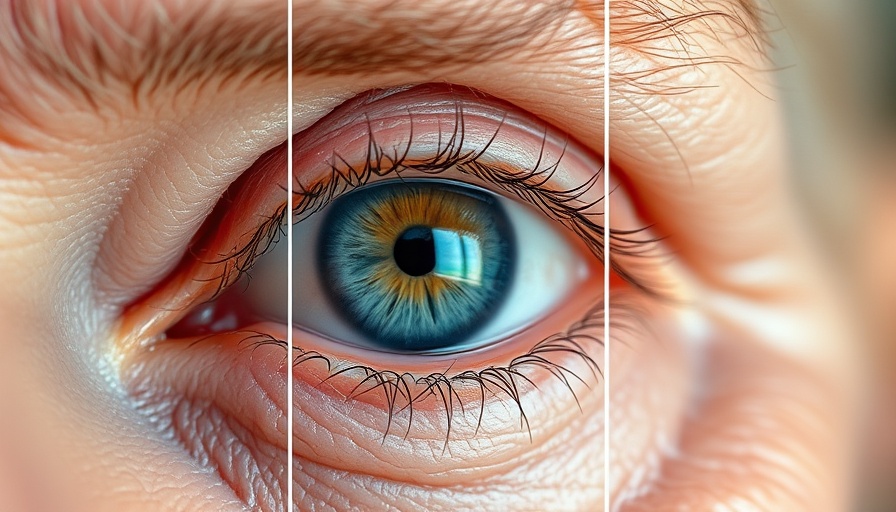
Reversing Age-Related Vision Decline: A New Hope
As we journey through life, changes in our eyesight can feel like an unwelcome companion, especially for women navigating the nuanced challenges of perimenopause and early menopause. These transitions often bring about not just hormonal fluctuations but also significant alterations in physical health, including eye health. Recent research from UC Irvine has uncovered a promising avenue in tackling age-related vision loss that might rekindle hope for those facing diminishing eyesight.
Understanding the Role of Fatty Acids
The breakthrough centers on the discovery that specific polyunsaturated fatty acids (PUFAs), not solely DHA (docosahexaenoic acid), can aid in reversing the effects of aging on the retina. This research builds upon pivotal findings regarding the gene ELOVL2, which seems to play a central role in age-related vision decline. Traditionally, low activity of this gene has been linked to reduced vision and the progression of age-related diseases such as macular degeneration (AMD).
Research Insights: A Shift in Perspective
Previous studies indicated that enhancing the ELOVL2 gene’s function could increase levels of DHA in the eye and improve vision. However, the latest findings challenge the adequacy of DHA alone. Experiments revealed that injections of certain combined fatty acids saw significant improvements in visual performance in mice. This discovery suggests that there are potentially more efficacious options for creating therapies aimed at revitalizing declining vision. Dr. Dorota Skowronska-Krawczyk, a key researcher, emphasized that DHA alone cannot combat the damage caused by aging, but these new fatty acids hold promise for not just treating declining vision, but possibly reversing some signs of cellular aging.
Embracing Future Possibilities
For women particularly affected by the physical changes associated with menopause, understanding the landscape of aging and its implications on vision is critical. The research opens the door to developing targeted interventions that could not only address age-related vision loss but may also extend benefits to immune health and more. Imagine a time when simple dietary additions could significantly boost not only visual acuity but overall wellness in midlife.
Looking Ahead: Personalized Approaches to Eye Health
This study underscores the importance of personalized nutritional approaches as we age. Just as individuals consult professionals about hormonal health during menopause, seeking advice on dietary adjustments might also be crucial for maintaining eye health. The potential connection of genetic variants to faster AMD progression brings forth a landscape ripe for tailored therapies—meaning women might one day have access to interventions tailored specifically to their genetic makeup and health history.
As promising as these findings are, they beckon for a proactive approach in engaging with healthcare discussions. Women navigating hormonal transitions should consider including screenings for eye health in their wellness check-ups. Imagine discussing new supplements aimed at reversing age-related vision issues during your next doctor’s visit. This knowledge empowers women to make informed choices about their health, marking a significant stride in the journey through midlife and beyond.
 Add Row
Add Row  Add
Add 




Write A Comment